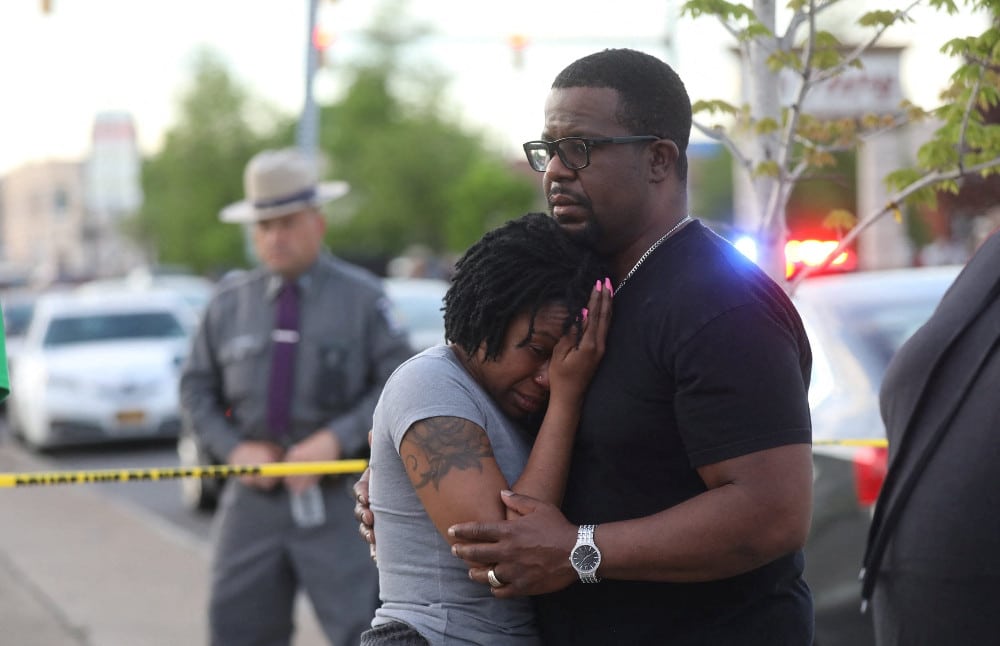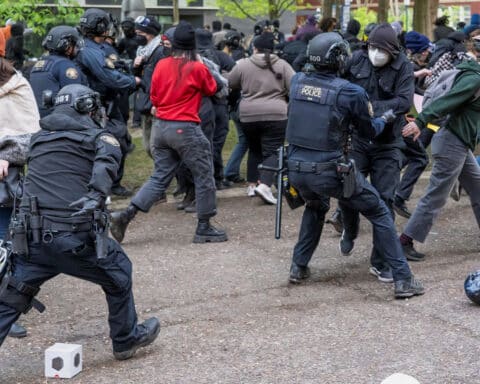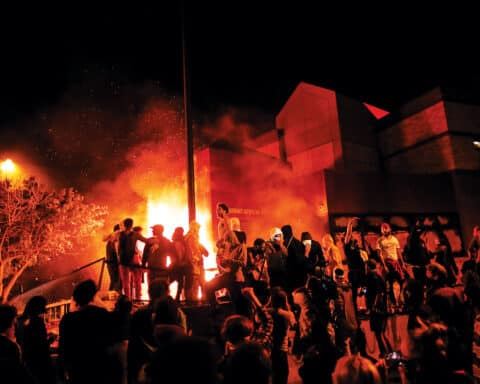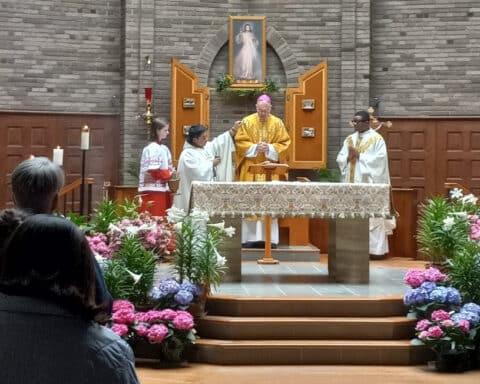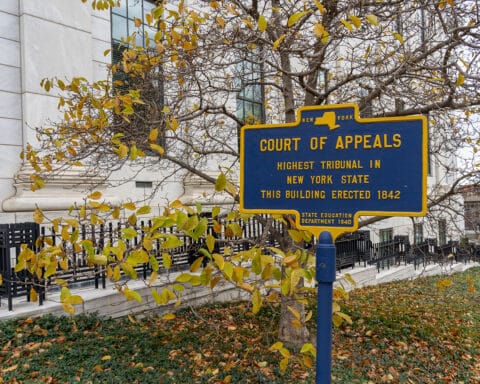Reading the stories of the victims of the Buffalo massacre on May 14, the word “shooting” seems too sanitary. As I looked at the picture of the small girl in a pink shirt and rainbow boots, flanked by her older sister and mother, staring in the direction of all that took place, I wanted to somehow shield them from that terrible reality that most of them already knew. Every time there is a racially motivated shooting, that mother on the phone must wonder, “What can I do — or my children do, or my parents, or grandparents, or sisters and brothers, or friends, or strangers do — without having to worry that someone will kill them for being?”
I asked God, “What should I pray (aside from for the families and the community suffering, reeling from this violent racist action by this very angry and rage-consumed soul)?” I asked because my own soul felt angry and impotent against such reckless rage. Prayer felt, in that moment, like just words.
“Conversion” was the simple answer that came back to me, and I admit, my fallen nature made me pull back. I sat with that reality, with that part of the soul that doesn’t want someone else to reform; we want them to simply end, to never be defined as anything other than what they did. In the moment, it feels reasonable, and praying for their conversion seems like a hopscotching over the victims in favor of a “let’s make it all better” redemption story. “It’s too soon,” my soul answered.
However, it isn’t. Praying for the full conversion of the shooter’s soul, such that he spends the fullness of his life in prayer, service and reparation for the evil he has done, seems like an insane prayer.
Except it isn’t.
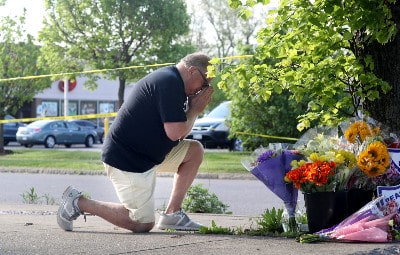
We’re supposed to want justice and peace to kiss. In that moment, I also recognized how hard it is for us to accept either God’s justice or God’s mercy for someone else. We want neither when we are the ones wounded, or when we identify with the wounded. We want — I wanted — well, less than God’s full love for the man who did this, because I could see the wounds he left by his sin, by his evil acts.
We do not understand the full reality we have yet to experience, and so, in our pain or anger or despair or frustration, we do not understand this desire to deny another. So I sat there with that unhappy recognition: I didn’t want to pray for that person’s soul.
It’s not an easy prayer. It’s not a platitude. Christ tells us to “pray for your enemies.” Praying that this soul recognizes his own sinfulness and how much he’s hurt the community of Buffalo, how much he’s done to injure people of color everywhere, is a start. But I know that “pray for your enemies” really means to pray for his full conversion. That’s hard. It costs to beg for mercy for someone, because it means we have to surrender the desire for something harder, something meaner, something crueler.
It also means that we have to be willing to shift through reality for what is just — and justice is hard to meet out when we cannot repair what has been broken, when we cannot restore what has been taken. We can go on, we can memorialize, we can grieve, and we can celebrate the lives lost, but we can’t reverse time and bring them back.
The shooter now must live with what he did — and so must the rest of us. However, what obligation do the rest of us — internet spectators via the news, to the deceased and their families, and to the shooter, who we helped create in some fashion by either neglect of racism or by the compartmentalizing of violence (which racism is) — have?
When we can pray for others who need this prayer without struggle, we aren’t actually praying for enemies. We’re praying for hypothetical people who hate us, and even people who might hate us, but who have not hurt us. It costs us nothing to toss an Our Father or Hail Mary their way. However, here, because it is raw, because it is new, and because we can see the consequences of this person’s evil acts in the dead and the wounded and the scars on a whole community, it costs to pray. At that point, I realized the weight of the phrase, “the life you save may be your own,” as I could feel God saying, “My child, who said anything about the conversion being a prayer just for him?”
The Venerable Father Nelson Baker is of Buffalo, New York. He was known for his deep charity for the community (caring for the homeless and orphans) and for his efficacious intercessory prayer. My own family has a Father Baker story concerning my grandmother, and I have family in Buffalo who live quite near to where this act of violence took place and who will have to help that city pick up the pieces. So I asked Father Baker to intercede for me and for all those families affected by this shooting — but also for the shooter and all who know him.
Pray for all of the victims, and for all of us, because the only way this sort of deep scaring of the world will stop is when every one of us sees everyone else we encounter as a person of innate dignity who is deeply loved by God and, thus, owed our prayers for their deeper conversion — and owed our service as part of of our own conversion.
Sherry Antonetti writes from Maryland.

